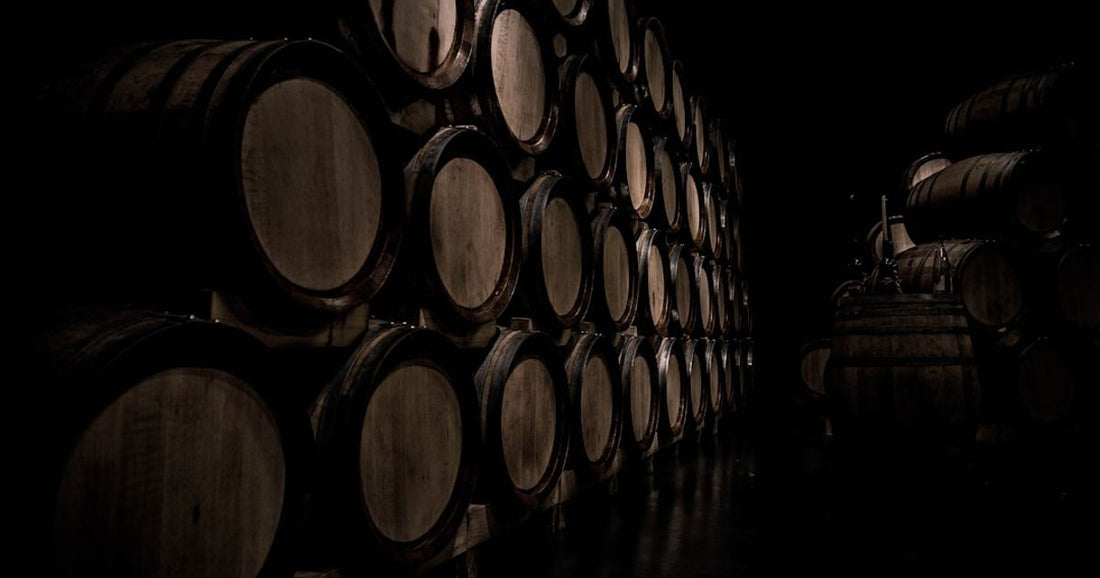
Red Wine Trends for the Current Year
Share
As we move further into 2024, the red wine industry is experiencing a renaissance of sorts, with innovative trends and practices shaping the future of winemaking and consumption. This year, enthusiasts and connoisseurs alike are witnessing a shift towards bold new flavors, sustainable practices, and a deeper appreciation for the craft of winemaking. In this article, we dive into the latest trends in red wine, exploring everything from the emergence of unexpected varietals to the growing emphasis on eco-friendly production methods. Join us as we uncover what's captivating the palates and minds of wine lovers in 2024.
Key Takeaways
Before we delve into the intricacies of this year's red wine trends, here are some key points to remember:
- Bold and Experimental Flavors: Winemakers are pushing the boundaries with innovative blends and aging processes.
- Sustainability and Organic Practices: There's a growing emphasis on environmentally friendly winemaking practices.
- Rise of Lesser-Known Varietals: Consumers are showing increased interest in exploring unconventional grape varieties.
- Digital Integration in Wine Experiences: Technology is playing a crucial role in how consumers discover and enjoy wine.
- Focus on Wine Education: There's a notable increase in resources and platforms dedicated to educating wine enthusiasts.
Bold and Experimental Flavors
Innovative Blending Techniques
The year 2024 has seen a surge in winemakers experimenting with unconventional blending techniques, combining varietals that traditionally haven't been mixed. This bold approach is not only redefining the flavor profiles of red wines but also challenging the norms of winemaking. From blending robust Cabernet Sauvignons with the fruity notes of Zinfandels to creating harmonious combinations of Merlot and Syrah, these innovative blends are captivating the palates of wine enthusiasts worldwide.
Exploration of Aging Processes
Another trend that's gaining momentum is the exploration of unique aging processes. Winemakers are venturing beyond traditional oak barrels, experimenting with different woods, and even aging wine in clay or concrete vessels. This experimentation is introducing a new dimension to the taste and aroma of red wines, offering consumers a diverse range of sensory experiences. The use of alternative aging materials not only impacts the flavor profiles but also contributes to the sustainability efforts within the industry.
Sustainability and Organic Practices
The wine industry is increasingly gravitating towards sustainability and organic practices, a trend that's becoming a cornerstone of winemaking in 2024.
Eco-Friendly Winemaking
Sustainable winemaking practices are at the forefront of the industry's efforts to mitigate environmental impact. Wineries are adopting organic farming techniques, reducing water usage, and implementing renewable energy sources. This shift not only benefits the environment but also enhances the quality of the wine, as grapes grown organically are believed to produce a purer expression of the varietal's characteristics.
Biodynamic Wine Production
Biodynamic wine production is gaining traction as winemakers strive to create wines that are in harmony with nature. This holistic approach treats the vineyard as a self-sustaining ecosystem, emphasizing the importance of soil health and biodiversity. Biodynamic wines are gaining popularity among consumers who value not only the taste but also the ethical and environmental considerations behind their production.
Rise of Lesser-Known Varietals
Exploring Unconventional Grapes
As consumers become more adventurous in their wine selections, there's a growing interest in exploring lesser-known varietals. Wines made from grapes like Mourvèdre, Grenache, and Nebbiolo are finding their way into the spotlight, offering wine lovers new flavors and aromas to discover. This trend is not only expanding the palates of consumers but also encouraging winemakers to diversify their vineyard plantings and production techniques.
Regional Varietals Gain Popularity
In addition to unconventional grapes, regional varietals from lesser-known wine-producing areas are gaining prominence. Wines from regions such as Eastern Europe, the Levant, and parts of South America are capturing the interest of enthusiasts looking to explore the diverse terroirs and unique wine-making traditions these areas offer. This trend is contributing to the global wine market's expansion, bringing attention to previously overlooked wine-producing regions.
Digital Integration in Wine Experiences
Virtual Tastings and Wine Education
The digital realm is revolutionizing how consumers learn about and experience wine. Virtual tastings have become a popular way for wine lovers to explore new varietals and regions from the comfort of their homes. Additionally, online platforms and apps dedicated to wine education are making it easier for enthusiasts to deepen their knowledge and appreciation for wine. These digital experiences are not only convenient but also offer a level of accessibility that was previously unavailable to many consumers.
E-commerce and Direct-to-Consumer Sales
The rise of e-commerce in the wine industry has transformed how consumers purchase wine. Direct-to-consumer sales have skyrocketed, allowing wineries to connect directly with their audience. This trend has been facilitated by advancements in digital marketing and social media, enabling wineries to reach a wider audience and offer more personalized wine experiences. As a result, consumers have unprecedented access to a vast selection of wines from around the world.
Focus on Wine Education
Expanding Resources for Wine Enthusiasts
The importance of wine education is becoming increasingly recognized within the industry. From detailed blogs and online courses to wine tasting events and seminars, there are more resources available than ever for enthusiasts looking to expand their wine knowledge. This emphasis on education is helping to demystify wine, making it more approachable and enjoyable for a broader audience.
The Role of Sommeliers and Wine Experts
Sommeliers and wine experts play a crucial role in guiding consumers through the ever-evolving world of wine. Their expertise is invaluable, not only in curating wine selections but also in educating consumers about the nuances of different varietals and regions. As the interest in wine education grows, the demand for knowledgeable professionals in the field is also increasing, highlighting the importance of continuous learning and exploration in the world of wine.
In conclusion, the red wine trends of 2024 reflect a dynamic and evolving industry that's embracing innovation, sustainability, and education. From the exploration of bold flavors and lesser-known varietals to the integration of digital technologies and a focus on eco-friendly practices, these trends are shaping a new era of wine production and consumption. As we continue to navigate these exciting developments, one thing remains clear: the world of red wine is richer and more diverse than ever before, offering endless opportunities for discovery and enjoyment.



